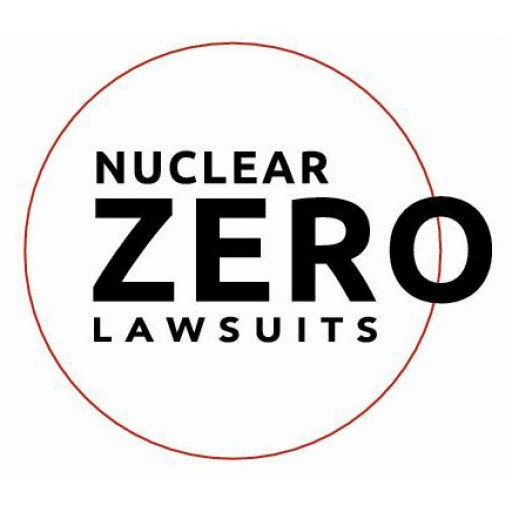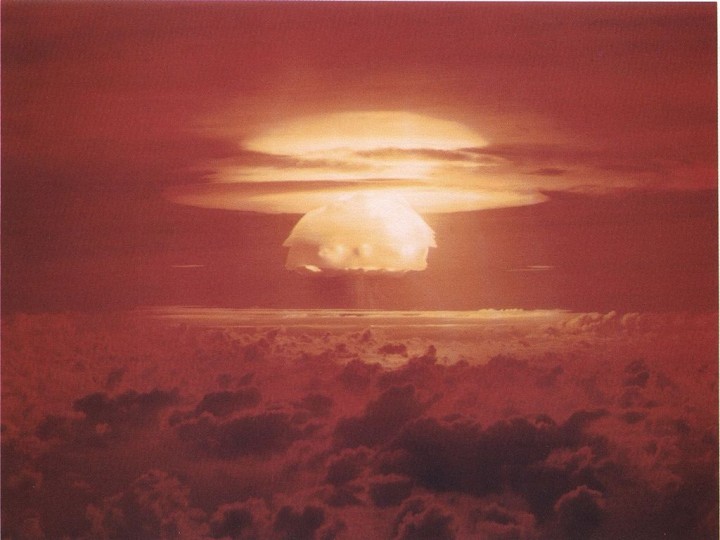 Yesterday marked two years since the Republic of the Marshall Islands (RMI) took a courageous stand against the world’s nine nuclear-armed nations. On April 24, 2014, the RMI filed nine groundbreaking lawsuits at the International Court of Justice and another lawsuit, separately, against the United States in U.S. Federal Court.
Yesterday marked two years since the Republic of the Marshall Islands (RMI) took a courageous stand against the world’s nine nuclear-armed nations. On April 24, 2014, the RMI filed nine groundbreaking lawsuits at the International Court of Justice and another lawsuit, separately, against the United States in U.S. Federal Court.
The Nuclear Age Peace Foundation is proud to stand with the Marshall Islands in support of this initiative. NAPF has served as a consultant to the RMI from day one, and will continue to do so as the cases move forward. At this time, we are focused on growing public awareness of the cases through traditional and social media, as well as coordinating a consortium of over 100 non-governmental organizations around the world that have signed on in support of the campaign.
Last month, the International Court of Justice in The Hague heard two weeks of oral arguments in the RMI’s cases against the United Kingdom, India and Pakistan. These were the first contentious nuclear disarmament cases ever brought before the world’s highest court. The judges are now deliberating and will deliver a ruling on the admissibility of the cases in the next few months.
We were in The Hague to support the legal team and report on the proceedings for the Pressenza international press agency. You can see a summary of our articles here. If you are interested in reviewing the many articles written in the media about the ICJ cases during the month of March, including from Associated Press, Reuters, NPR and BBC, click here.
The RMI’s case against the United States is currently pending in the Ninth Circuit Court of Appeals.
More information about all of the cases is available at www.nuclearzero.org. While you’re there, if you have not yet signed the petition in support of the Marshall Islands’ action, you can join the 5 million-plus who have already done so.
Sincerely,
Rick Wayman
Director of Programs
Nuclear Age Peace Foundation
INTERNATIONAL COURT OF JUSTICE CONCLUDES HEARINGS IN PRELIMINARY PHASE OF HISTORIC NUCLEAR DISARMAMENT CASES
Rick Wayman
+1 805 696 5159
rwayman@napf.org
Sandy Jones
+1 805 965 3443
sjones@napf.org
16 March 2016
THE HAGUE – The International Court of Justice (ICJ) today concluded the oral arguments in the preliminary phase of the nuclear disarmament cases brought by the Republic of the Marshall Islands (RMI) against India, Pakistan and the United Kingdom. The hearings, which took place at the ICJ from 7-16 March, were the first contentious cases on nuclear disarmament ever heard at the Court. This set of hearings addressed the respondent nations’ objections to the cases relating to questions of jurisdiction and admissibility.
Tony de Brum, Co-Agent and former Foreign Minister of the RMI, recounted to the Court the Marshall Islands’ unique perspective about the effects of nuclear weapons due to 67 U.S. nuclear weapons tests conducted in its territory from 1946-58. In a stunning moment at the opening of the hearing against Pakistan on 8 March, Mr. de Brum had the full attention of the entire courtroom. He said:
Yesterday was a beautiful morning here in The Hague that featured a picture-perfect snowfall. As a tropical State, the Marshall Islands has experienced “snow” on one memorable and devastating occasion, the 1954 Bravo test of a thermonuclear bomb that was one-thousand times the strength of the Hiroshima bomb. When that explosion occurred, there were many people, including children, who were a far distance from the bomb, on our atolls which, according to leading scientists and assurances, were predicted to be entirely safe. In reality, within 5 hours of the explosion, it began to rain radioactive fallout at Rongelap. Within hours, the atoll was covered with a fine, white, powdered-like substance. No one knew it was radioactive fallout. The children thought it was snow. And the children played in the snow. And they ate it.
The Marshall Islands was clear that while their history with nuclear testing gives context to their current actions for global nuclear disarmament, the cases at the ICJ relate specifically to nuclear-armed states’ breaches of Article VI of the Non-Proliferation Treaty and/or customary international law.
Phon van den Biesen, Co-Agent of the Marshall Islands, expressed disappointment that there were not nine respondent nations present for this round of hearings. Only India, Pakistan and the United Kingdom accept the compulsory jurisdiction of the ICJ. Mr. van den Biesen said, “It is a shame that the other six nuclear-armed States [United States, Russia, France, China, Israel and North Korea] have decided that, for them, there was no need to respond to the Marshall Islands’ Applications of 24 April 2014.”
All three respondent nations – India, Pakistan and the UK – claimed in written and/or oral pleadings that they are supportive of nuclear disarmament and that they agree with the Marshall Islands about the need for a nuclear weapons-free world. The Marshall Islands presented specific examples of behavior in direct contrast to such aspirational claims.
Most telling, perhaps, was India’s decision to test-fire nuclear-capable missiles on two days on which the ICJ was hearing the case against it. On both 7 and 14 March, India tested ballistic missiles, an act that Phon van den Biesen, Co-Agent of the Marshall Islands, suggested could be called “contempt of court.”
The United Kingdom, for its part, told the Court that if it ruled against the UK in this case, it would be forced to be the “one hand clapping” among the nuclear-armed states calling for nuclear disarmament negotiations. On 11 March, responding to the UK’s statement, Tony de Brum said, “This is another way of saying that, to the UK, no parties are pursuing in good faith such negotiations. Or, put differently still, it is like the person who, caught in poor conduct, replies: ‘Everybody’s doing it.’”
Pakistan chose not to attend the oral hearings, telling Judge Ronny Abraham, President of the ICJ, in a letter, “The Government of Pakistan does not wish to add anything further to its statements and submissions made in its Counter-Memorial and therefore does not feel that its participation in the oral proceedings will add anything to what has already been submitted through its Counter-Memorial.”
In his concluding remarks, Tony de Brum said, “In its 1996 Advisory Opinion, this Court observed that nuclear weapons ‘have the potential to destroy all civilization and the entire ecosystem of the planet’. The Marshall Islands has come before this Court because of its belief in, and reliance upon, the rule of law.”
In its final submissions to the Court, the Marshall Islands asked the judges to adjudge and declare that the Court has jurisdiction over the claims of the Marshall Islands submitted in its Applications of 24 April 2014, and that the claims are admissible.
The 15 judges of the ICJ, along with judge-ad-hoc Mohammed Bedjaoui, will now deliberate on jurisdiction and admissibility issues raised in the written and oral pleadings. The Court will announce its decisions in a public sitting at a date to be announced.
For more information about these ICJ cases in a detailed Question and Answer format, click here.
Contact information for the International Legal Team:
Phon van den Biesen, Co-Agent of the RMI
Attorney at Law at Van den Biesen Kloostra Advocaten, Amsterdam http://vdbkadvocaten.eu/en/phon-van-den-biesen-en/
+31.65.2061266
phonvandenbiesen@vdbkadvocaten.eu
A complete list of the International Legal Team as well as information on the lawsuits can be found atwww.nuclearzero.org. The California-based Nuclear Age Peace Foundation is consultant to the Republic of the Marshall Islands.






